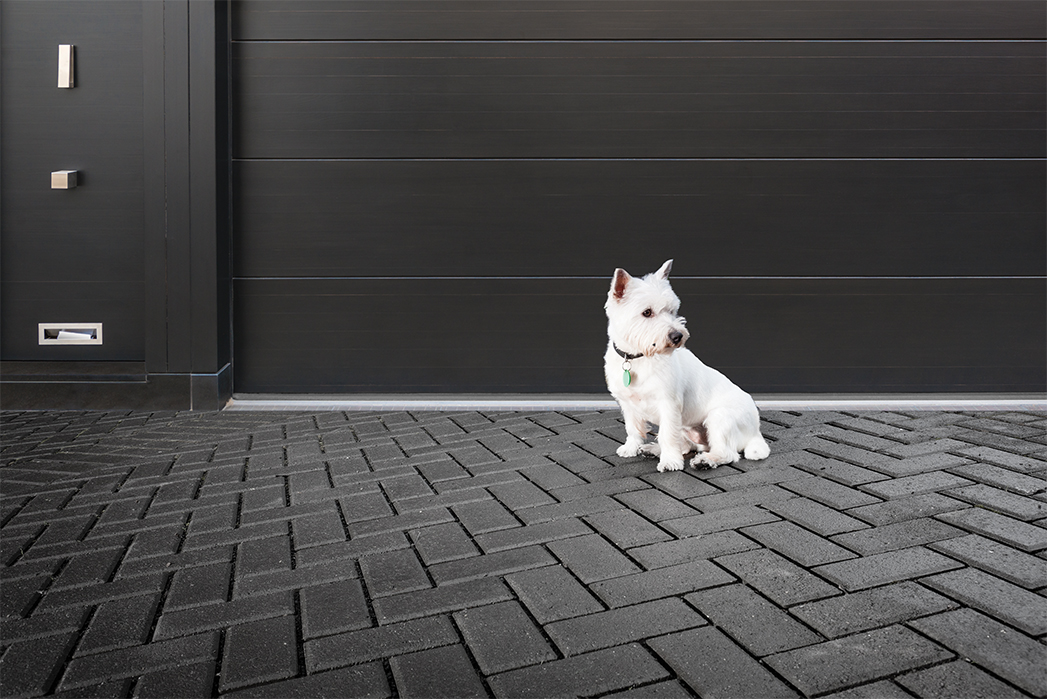
While synonymous, the terms permeable, pervious and porous are quite different when it comes to discussing suitable pavement systems and their ability to offer you the best environmental paving option for your situation.
Let’s have a look at the differences and why choosing a permeable pavement system from Firth will give you everything you are looking for.
- The Latin root word for permeable ( permeare ) means capable of passing something like air or water;
- The Latin for pervious ( pervius ) means capable of accepting something like air or water; and
- The Latin root word for porous ( porus ) means full of holes
In New Zealand the different types of pavement that deal with stormwater are often referred to as ‘Permeable Pavements’, but it is important to note that there is a difference between them.
|
Understanding the difference A permeable pavement has solid pavers with enlarged joint widths filled with a highly permeable aggregate that allows the water around the paver unit into the open graded basecourse. Firth’s FlowPave is a very good example of this system. A pervious pavement is typically a grass filled grid pavement that accepts the water but does not necessarily pass it through to the underlying dense graded basecourse. Firth Grass Pavers and Firth Gobi® Block are examples of this system. A porous pavement is a pavement with open pores throughout that allows the water through the pavement to the open graded basecourse. Firth PorousPave® is an example of this. |
“There is a lot of talk about permeable paving but it’s important for people to understand the difference between a porous paver, where liquids can pass through the paver itself (Firth PorousPave®), and then our permeable paving systems (FlowPave and 300 x 300 mm patio paver) which allow water to run through gaps around the paver and into the prepared system below,” says Stuart.

How it works …
- Firth’s EcoPave® range provides permeable paving solutions to assist storm water management, reduce run off and filter pollutants from the water.
- The EcoPave® system is made up of permeable or porous pavers overlaying a storage medium consisting of Firth EnviroMix concrete or a specifically designed drainage aggregate. Geotextiles are used to separate the storage area from the bedding layer and the sub-grade.
- Together these elements create a highly functional system of permeability, without compromising aesthetics.
“While some pavers claim permeability when in fact they are porous, they lack the full system below which is the real hero when it comes to dealing with stormwater runoff and filtering pollutants,” says Stuart Girvan, Technical & Specification Advisor (Masonry) for Firth. “The other very important factor is the cost difference.”
“We offer permeable paving systems and porous pavers but I would back the performance of our permeable paving systems, FlowPave and the Permeable Patio paver over a porous paver anytime. It’s just a better overall system that complies with all Council requirements when a permeable system is stipulated. And now we have our very attractive, more aesthetically pleasing Permeable Patio Paver system to add to the EcoPave® range.”
“Firth FlowPave has been in the New Zealand market now for about 17 years and in all that time it has had great success because of its durability, dependability and easy care maintenance properties,” explains Stuart. “Generally permeable pavements are a relatively new concept in New Zealand and the market continues to grow rapidly as regional authorities look for ‘at source’ stormwater controls to mitigate additional runoffs due to urbanisation.”
Examples of FlowPave in action:
|
FlowPave satisfies Council requirements at Woburn Apartments, Wellington The Woburn Apartments, part of the Masonic Villages Wellington retirement village, feature large sections of Firth FlowPave - permeable paving. “We were required by Council to use a permeable paver for large areas of hard surfaces to help process surface water run off,” explains Alan Atack, Project Manager for the Masonic Villages Trust. “We had to find a way to deal with water storage on site and Firth FlowPave in Natural was a very good solution. The fact water seeps slowly into the substrate has dramatically dealt with water run-off in high rain events and has reduced pressure on stormwater systems inside and outside the village.” |
 |
|
FlowPave helps target 7 Homestar points With the Remarkables at the back door, building a warm, energy efficient home was on the list of ‘must haves’ for the Lloyd family when designing and building their holiday home in Queenstown - with the aim of obtaining a 7 Homestar rating, a result in part to be achieved with the use of Firth FlowPave from Firth's EcoPave® Paving Range. “The smaller FlowPave cobbles are a nice option and look very neat and tidy,” says Chris Werminghaus from Creation Green, who laid the paving system. “The smaller paver with the smaller stones offers very good drainage.” |
 |
For more information from industry leaders Firth on the EcoPave® range, contact one of the technical team - Bernice Cumming or Stuart Girvan on 0800 FIRTH1.